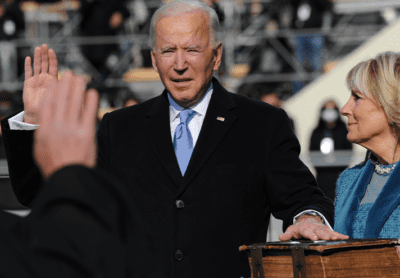The United States has issued a strong advisory against travel to Lebanon, citing escalating border tensions with Israel. The US Embassy in Beirut released a statement urging American citizens to reconsider any travel plans to Lebanon. For those already in the country, the embassy emphasized the importance of taking precautionary measures, including avoiding travel to southern Lebanon and areas bordering Syria. This advisory comes amid fears of a possible war between Israel and Hezbollah, a Lebanese militant group.
The embassy highlighted that the Lebanese government cannot ensure the safety of US citizens in the event of sudden outbreaks of violence and armed conflict. This warning follows a pattern of increasing international concern as tensions rise in the region. The United States joins Russia and Ireland in issuing travel advisories, reflecting a broader apprehension about the stability and security in Lebanon.
US, International Warnings Reflect Growing Concerns Over Lebanon’s Security
In addition to the US advisory, several other countries have issued similar warnings against travel to Lebanon. The Russian Embassy in Beirut advised its nationals to refrain from traveling to the country, with Ambassador Alexander Rudakov urging citizens to wait until the situation stabilizes. This sentiment was echoed by the Irish Foreign Ministry, which advised against all travel to certain areas of Lebanon and urged those already in the country to exercise extreme caution. The ministry pointed out the rapid deterioration of the security situation and the heightened risk of violence, including clashes between armed groups and the Lebanese Armed Forces.
The United Kingdom has also strongly advised its citizens against all travel to Lebanon, citing risks associated with the ongoing conflict between Israel and the Occupied Palestinian Territories. Similar warnings have been issued by Switzerland, Australia, Germany, the Netherlands, Canada, and North Macedonia. These advisories underscore the international community’s growing concern about the potential for widespread violence and instability in Lebanon.
Escalating Tensions Along the Lebanon-Israel Border
The advisories come amid increasing cross-border attacks between Hezbollah and Israeli forces. The conflict has intensified as Israel continues its offensive on the Gaza Strip following an attack by Hamas, resulting in significant casualties. The Lebanese-Israeli border has seen a surge in hostilities, raising fears of a broader conflict that could engulf the region. Since October, the violence has claimed the lives of over 37,700 people, exacerbating an already volatile situation.
Kuwait was the first to issue a travel advisory for Lebanon, urging its nationals to avoid travel and advising those already in the country to leave immediately. This proactive stance has been mirrored by other nations as the risk of a full-blown war looms large. The international community’s response highlights the urgent need for diplomatic efforts to de-escalate the situation and prevent further loss of life.
These developments underscore the precarious nature of the security environment in Lebanon, with international warnings reflecting the potential for significant and rapid deterioration. The advisories serve as a stark reminder of the ongoing and severe risks faced by those in the region.
Diplomatic Efforts to Prevent Full-Scale War
As months of clashes between Israel and Hezbollah raise fears of a full-scale war, international efforts to prevent such an escalation have intensified. The security cabinet in Israel, now the official decision-making body for war, is set to convene to discuss the possibility of total war against Hezbollah. The United States and other countries have been actively involved in diplomatic efforts to avert a full-blown conflict.
The Lebanese Al-Akhbar newspaper reported that most Western embassies, particularly European missions, have already evaluated potential evacuation sites along the Lebanese coast. This precautionary measure aims to ensure the safety of their citizens should a war break out. Since early October, Hezbollah-led forces have been attacking Israeli communities and military posts along the border, justifying these actions as support for Gaza amidst its conflict with Hamas. The situation has prompted several countries to issue warnings and prepare for a potential escalation.
European Union’s Role in De-escalation Efforts
The European Union has also taken an active role in attempting to de-escalate tensions between Israel and Lebanon. This week, Lebanese Foreign Minister Abdullah Bouhabib met with EU officials in Brussels to discuss preventive measures against an all-out war. During a working lunch with EU’s outgoing foreign policy chief Josep Borrell, the ministers deliberated on how the EU could contribute to reducing the escalation and tension in southern Lebanon.
Borrell emphasized the importance of maintaining peace and stability in the region, highlighting the EU’s support for the Lebanese Armed Forces and the United Nations Interim Force in Lebanon. In a social media post, Borrell warned that any war between Israel and Lebanon would have significant repercussions for the EU. Bouhabib is also scheduled to visit the US and Canada to further discuss Lebanon’s efforts to mitigate the risk of a large-scale war in the south.
Ongoing Skirmishes and Casualties
The ongoing skirmishes along the Israel-Lebanon border have already resulted in significant casualties. On the Israeli side, 10 civilians have been killed, along with 15 IDF soldiers and reservists. Hezbollah has reported the deaths of 350 of its members, mostly in Lebanon but some in Syria as well. In addition, 64 operatives from other terror groups, a Lebanese soldier, and dozens of civilians have been killed in Lebanon.
Hezbollah announced on Thursday the death of one of its members, Ali al-Din, from Sohmor, following an Israeli drone strike in the Western Beqaa District. The attack, which targeted a motorcycle, resulted in at least one fatality. These incidents underscore the volatile and dangerous situation at the Israel-Lebanon border, as both sides prepare for the possibility of further escalation














